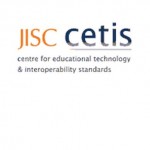
The view here is that the use of analytics to understand research is a given part of contemporaneous research, at researcher, research group, institution, national and international levels. Given the fundamental importance of assessment of research and the role that analytics may play, it is of paramount importance for the future of research to construct institutional and national assessment frameworks that use analytics appropriately.
Evidence-based impact agendas are increasingly permeating research, and adding extra impetus to the development and adoption of analytics. Analytics that are used for the assessment of impact are of concern to individual researchers, research groups, universities (and other institutions), cross-institutional groups, funding bodies and governments. UK universities are likely to increase their adoption of Current Research Information Systems (CRIS) that track and summarise data describing research within a university. At the same time, there is also discussion of increased ‘professionalisation’ of research management at an institutional level, which in part refers to increasing standardisation of the profession and its practices across institutions.
The impetus to assess research is, for these and other social, economic and organisational reasons, inevitable. In such a situation, reduction of research to ‘easily understandable’ numbers is attractive, and there is a consequent danger of over-reliance on analytic results without seeing the larger picture.
With an increased impetus to assess research, it seems likely that individual researchers, research groups, departments and universities will start to adopt practices of research reputation management. However, the use of analytics to understand research is an area fraught with difficulties that include questions about the adequacy of proxies, validity of statistical methods, understanding of indicators and metrics obtained by analytics, and the practical use of those indicators and metrics in helping to develop, support, assess and manage research.
To use analytics effectively, one must at least understand some of these aspects of analytics, and certainly understand the limitations of different analytic approaches. Researchers, research managers and senior staff might benefit from analytics awareness and training events.
Item Info
URL: http://publications.cetis.ac.uk/2012/518Publication Date: December, 2012
Author(s): Mark van Harmelen Hedtek
Source: Cetis Analytics Series
